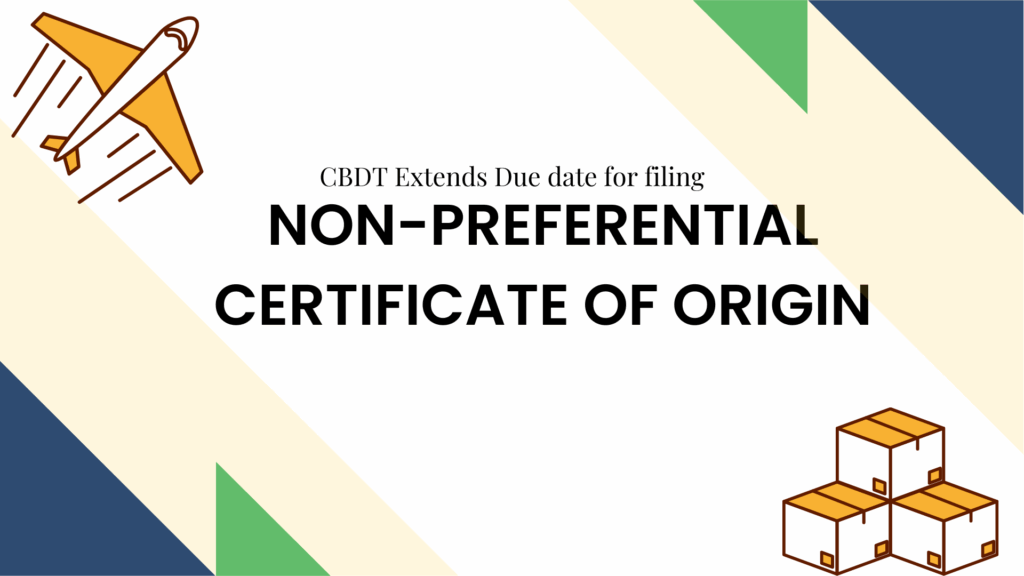Filing of Non-Preferential Certificate of Origin is Extended till march 2023
What is Certificate of Origin?
A Certificate of Origin is a certificate ial that is used to identify the country of manufacturing of any goods or commodity. The Certificate of Origin carries many other points of information such as what the product is, its destination and the countries of export.
It is a necessary instrument for export or cross-border trades, as agreed upon by trade agreements and treaties by nations.
Who Issues a Certificate of Origin?
A Certificate of Origin is issued by both the Indian Chamber of Commerce as well as Trade Promotion Council of India.
This certificate issued by these two bodies is essential for exporters in India to prove that the commodities being exported are of Indian origin.
It also proves that the commodity exported is wholly obtained, manufactured or produced in India. Millions of Certificates of Origins are issued around the world to facilitate trade and commerce worldwide.
A Certificate of Origin must be signed by the exporter with a permanent indemnity bond on a non-judicial stamp paper of Rs 10, duly notarised (format for Indemnity Bond is available with the Certificate of Origin Dept).
The certificate must also be signed and stamped by the Chamber of Commerce or any other authority with such qualification. It is the most commonly used document to prove the origin of goods.
Types of Certificate of Origin
There are two kinds of Certificate of Origin that Chambers of Commerce may issue:
- Non-preferential Certificate of Origin: This type of Certificate of Origin states that the goods being exported/imported are not given any preferential tariff treatment and the due duties must be levied upon the goods that are being moved.
- Preferential Certificate of Origin: This type of Certificate of Origin is given towards goods that are subject to preferential tariff treatment in the payment of duties. These duties may be a reduction of the normal tariff, or it also may be a complete exemption of the tariffs. Such a situation arises when two or more nations reach a trade agreement entailing such exemptions when goods are exported or imported between these nations.
The Director General of Foreign Trade (DGFT) has extended the due date for mandatory electronic filing of Non-Preferential Certificate of Origin (“CoO”) through the common digital platform till March 31, 2023.
Earlier, the transition period for mandatory filing of applications for Non-Preferential Certificate of Origin through the e-CoO Platform has been extended till March 31, 2023.
While the exporters and NP CoO Issuing Agencies would have the option to use the online system, the same shall not be mandatory till March 31, 2023.
The existing systems of processing non-preferential CoO applications in manual/paper mode are being allowed. For guidance on the registration and online application submission process, the Help Manual & FAQs may be seen on the landing page at https://coo.dgft.gov.i,”
The Notification stated that the authorized agencies are therefore required to sensitize the exporting community and their constituents regarding the online system and its registration requirements well in time.
Any issues relating to the IT system and its implementation may also be brought to our notice for appropriate action.










